In almost every old industrial town in Appalachia, the rich people populated the hilltops and lived on their capital, the poor people lived on the river flats on their brawn, and the middle-class people lived in the houses that climbed the hills, working as clerks or laborers or running small businesses.
I come from people who clung to the hillsides by their fingernails.
My ancestors were bookkeepers and barkeepers, laborers, tailors and builders. They owned furniture stores and barber shops. When one business failed, they started another one. They came to America from the Rhineland, Austria and Ireland, and persevered through Depression and war. The lucky ones had real estate, or the proceeds from selling a business, to provide a retirement income. Most of them worked until they dropped dead.
Their lives played out primarily in McKees Rocks (see my previous blog post and The History of McKees Rocks) and Sheraden. Here are some of their stories….
The Kriegers in McKees Rocks & Sheraden
My great-grandfather Frank Krieger was born in Austria in 1878. His parents immigrated to the United State in 1889 and 1893. Frank stayed behind and didn’t join his parents in Bridgeville, PA, until 1897. In 1903, he married Suzanne Steiner, also a native of Austria. He was a steel mill laborer and did well enough that he bought a house on Merwyn Avenue in Sheraden, where he died in 1936.
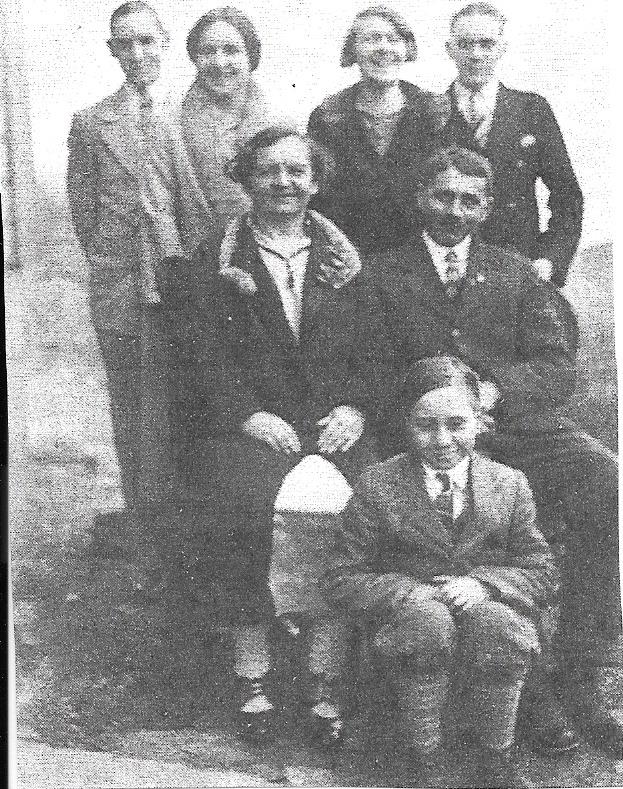
My grandfather Walter Krieger was the third of Frank and Suzanne’s five children. A serial entrepreneur, the business that finally brought him prosperity was as a building contractor. He bought a second home, a vacation cottage on Pymatuning Lake where our family gathered every summer. When my parents bought their first house, Grandpap bought all their landscaping plants and helped to establish them, and bought me a swing set for the back yard. That once-poor carpenter, who was frequently on the brink of insolvency during the Depression, must have been so proud to be able to do those things for his family.
Grandpap retired to Florida in his 50s after a heart attack left him unable to continue working. He lived a long life after that, dying in Florida in 1993 at the age of 85. Grandpap was extraordinarily lucky to survive that heart attack back in the early 1960s. His father and every single one of his siblings died of heart attacks.
The Marxes in McKees Rocks
Grandpap Krieger lost his father and his first wife in one terrible year in 1936. My grandmother Margaret Marx Krieger, died of breast cancer at 28, leaving two little boys: my dad and my Uncle Skip. Her twin, Aunt Elsie, was an amazing warrior against breast cancer. Diagnosed in her 30s, she underwent the treatments available in that era. She had her only child a few years later at 40, beat breast cancer AGAIN in her 50s, and lived another 30 years.
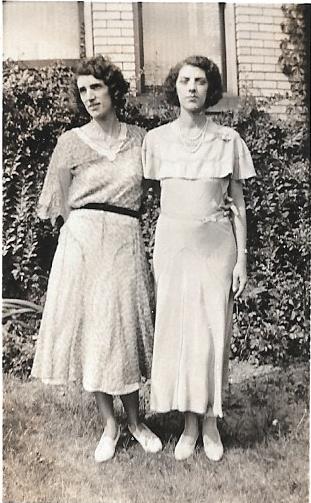
Twin sisters Aunt Elsie Marx Lureau (L) and my grandmother Margaret Marx Krieger (R) around 1935
Margaret and Elsie’s brother, Ed Marx, was a vivid, beloved figure in my
childhood. All the Marx men were tall, thin and fidgety. If he was
upright, Uncle Ed was pacing. If he was seated, his legs were crossed and
the top leg was wiggling. Ed’s brother, Fred, had the same quirk, as did
my father and Uncle Skip.
Uncle Ed’s restlessness extended to business. He and Grandpap Krieger tried a couple of business ventures together during the Depression. Eventually, Uncle Ed owned a barber shop and dry cleaners in McKees Rocks with a partner (see my previous blog post). Later, he owned a bar on Chartiers Avenue. Like Grandpap, he eventually did well enough to retire – although his wife, my Aunt Mary, said that had as much to do with her steady work at the YMCA as with Uncle Ed’s many business ventures!
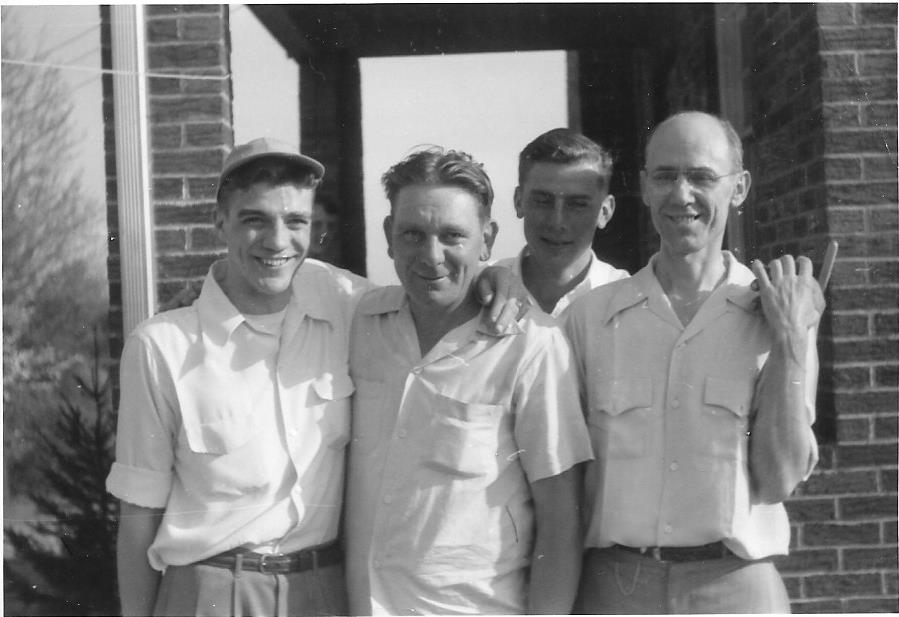
Early 1950s L-R: My dad Kenneth Krieger, my grandfather Walter Krieger, my Uncle Skip Krieger and Uncle Ed Marx. I think this picture was taken at the house Grandpap built in Butler in the 50s.
I know less about my Marx great-grandparents than my other ancestors. Great-grandpap Marx was a tailor in McKees Rocks, and owned an apartment building on Woodward Avenue. My parents rented an apartment from him in the first years of their marriage. I was born in that apartment on Woodward.
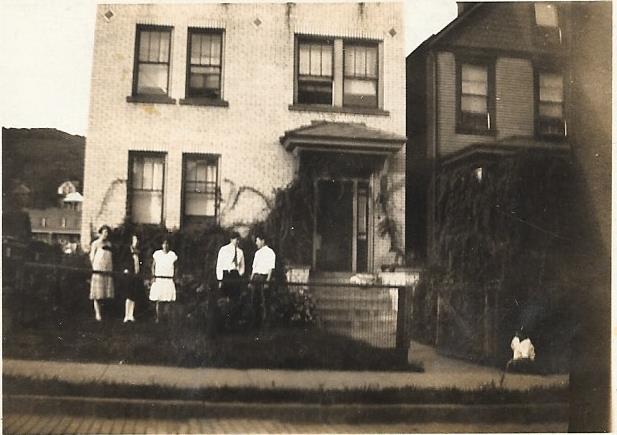
The Yaggis in McKees Rocks
My mother’s family came from Ireland and Alsace – the province along the Rhine that is German or French, depending who won the last war.
The Yaggis came from an Alsatian town called Befferen-on-the Rhine. When Al and I went to eastern France in 2012, we tried unsuccessfully to locate Befferen-on-the Rhine. It’s either been absorbed into a larger town or it was wiped out in one of the wars. My Yaggi great-great-grandfather, Christian, was born in Befferen-on the-Rhine in 1823. He immigrated to the United States as a young man, settling in Allegheny City and working for a brewer named Lutz on Spring Garden Avenue. Christian married Anna Kilmeyer and they had 3 children before Christian’s death. Anna’s second marriage produced 3 more children.
Christian and Anna’s middle child, Fred, was my great-grandfather. My mother remembers that he had a German accent, although he was born in Allegheny. He clerked in dry goods stores in Allegheny and the West End, before coming to McKees Rocks and going into the furniture business with his brother-in-law John Yunker, in 1900.
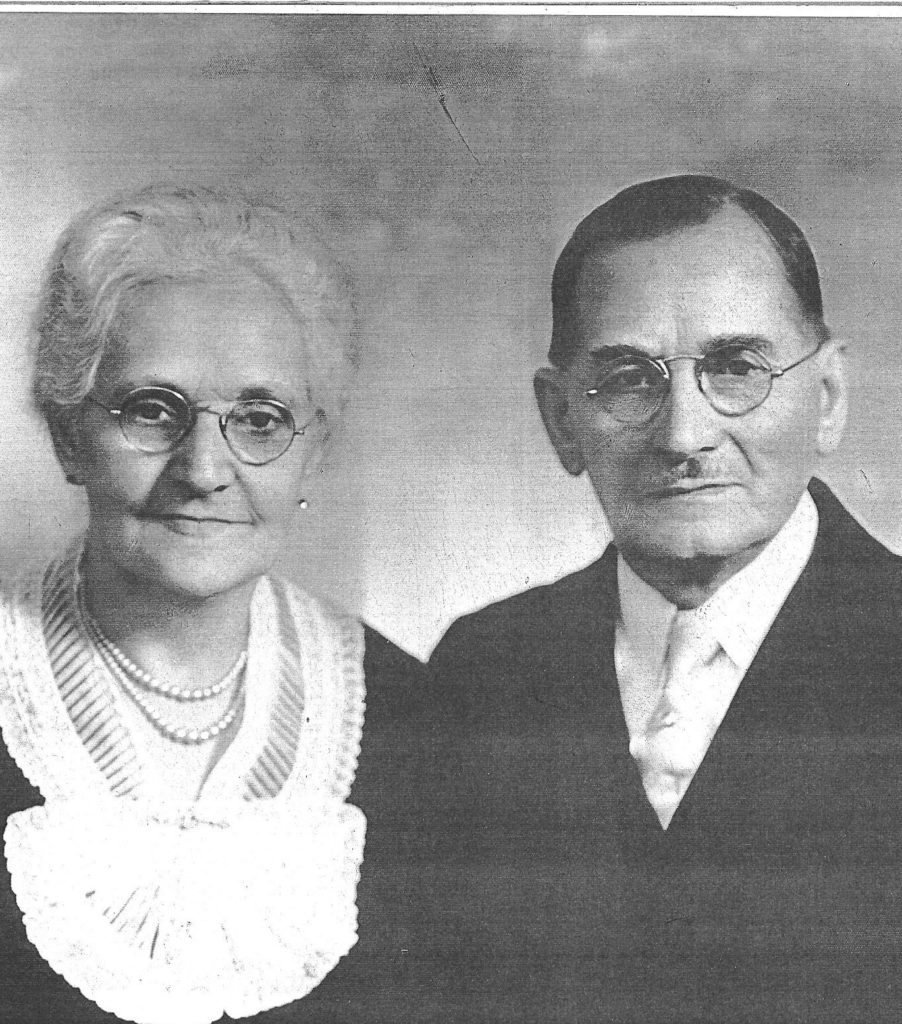
In 1886, Fred married Mary Linsler, and they had 4 children in a house on Second Street in McKees Rocks. The eldest, Sylvester, went into the furniture business with his father. My grandfather, Norbert (called “Nock”), was the youngest. He made his career as a bookkeeper at Duquesne Light, and earned a pension that supported him and my grandmother comfortably until they died. I loved spending time at their house on Wayne Ave in McKees Rocks when I was a little girl, climbing trees with my Walsh cousins and buying penny candy at Zimmermans.
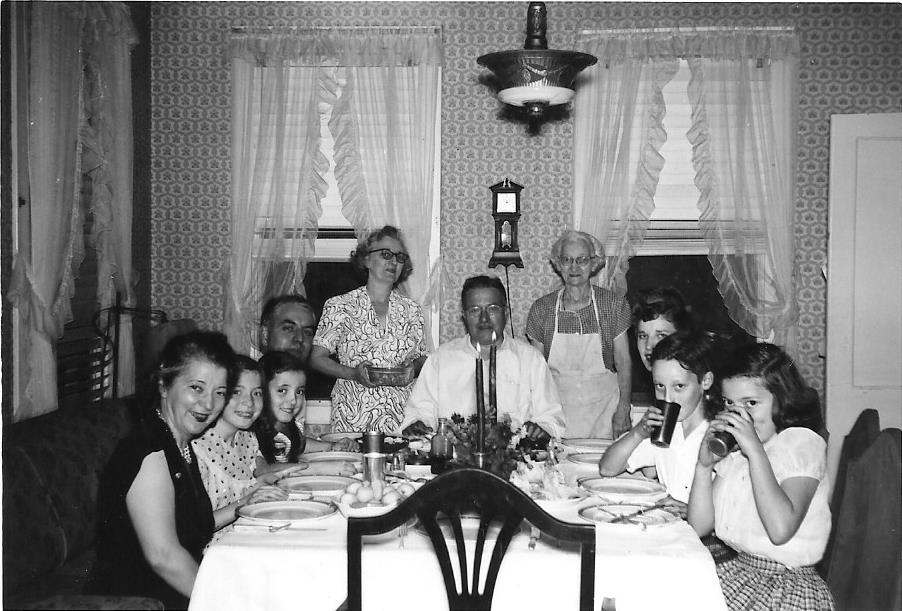
Grandpap Yaggi’s VERY Short Military Service
When I was a little girl, I asked Grandpap Yaggi if he ever fought in a war and he said, very brusquely, “No, I was too young.” But, at his funeral in 1989, my grandmother was presented with an American flag, as the widow of a veteran. She finally revealed that Grandpap had been in the Army for exactly one day in World War I: November 10, 1918, with a discharge date of November 11. Armistice Day! Grandpap longed to enlist for the war but he was young enough to need his parents’ permission, which they refused. Within weeks of turning 20, he was at the recruiting office, but too late to be a hero. I finally understood why the war was a sore subject with him. We have a copy of his discharge papers, and a receipt for his pay for one day’s service: a grand total of $2.
The Grants in McKees Rocks
Grandma Yaggi was Mary Angela Grant before she married Grandpap in 1923. Born in 1901, Grandma was a flapper and bragged about being the first girl in the Rocks to shingle her hair and wear galoshes and short dresses. Her grandparents, John Grant and Mary Ann O’Neil, were born in Ireland. They must have emigrated early in life, because her father Michael Grant was born in Ironton, Ohio in 1870. Grandma’s mother, Margaret Saunders (Sanders in some records), was born in Brady’s Bend, PA in 1869. It’s not clear how they ended up in McKees Rocks, but my grandmother and her siblings all grew up in the Norwood section of the Rocks.
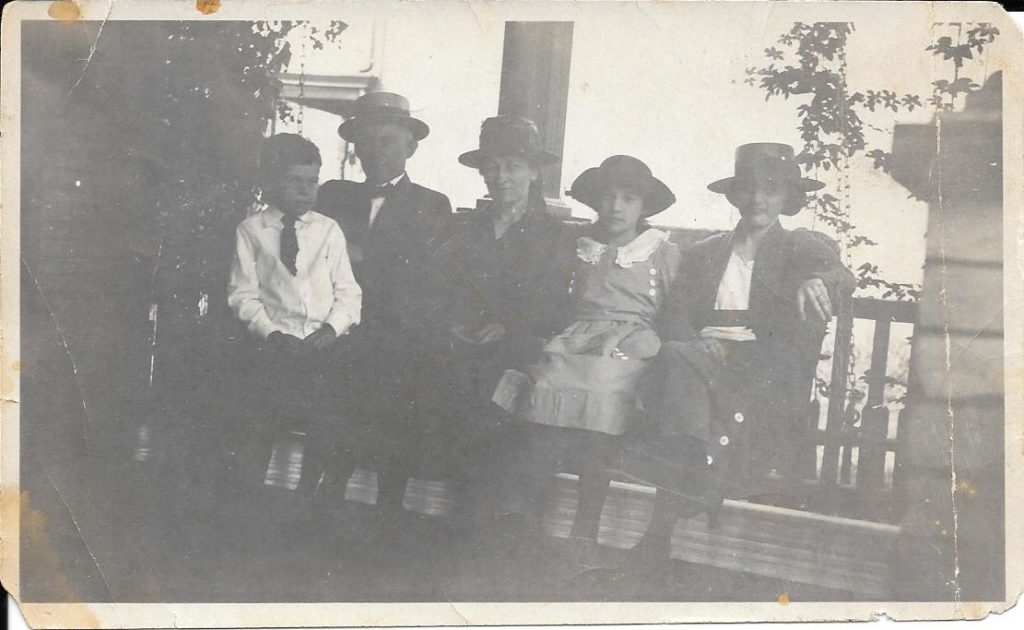
Great-grandpap Grant worked as a laborer in the railyards and mills of McKees Rocks. Great-grandma Grant – whom we little ones called “Grandma Great” – lived until I was 4 and resided with my grandparents. I vaguely remember being afraid of her. She was so terribly old, and didn’t seem to like little children very much.
The Adventures of Uncle Pat
Another person she didn’t much like was her brother-in-law Patrick Grant, who also lived with my grandparents for many years. Uncle Pat, a railroad worker, took advantage of an opportunity to go to Russia and to help build the Trans-Siberian Railroad. When the Bolshevik Revolution interrupted the railroad work, Uncle Pat had to escape across Siberia and through Japan. He brought back a beautiful piece of Japanese embroidery that hangs in my living room today.
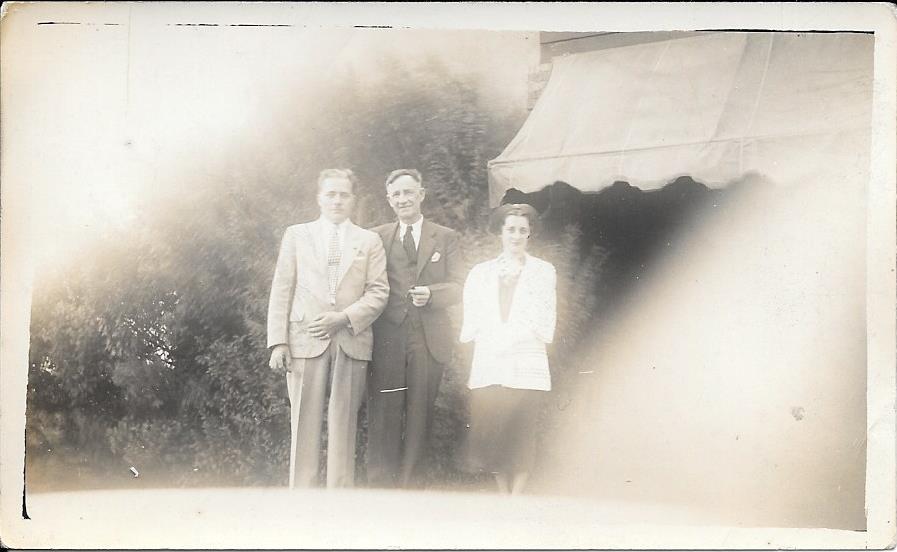
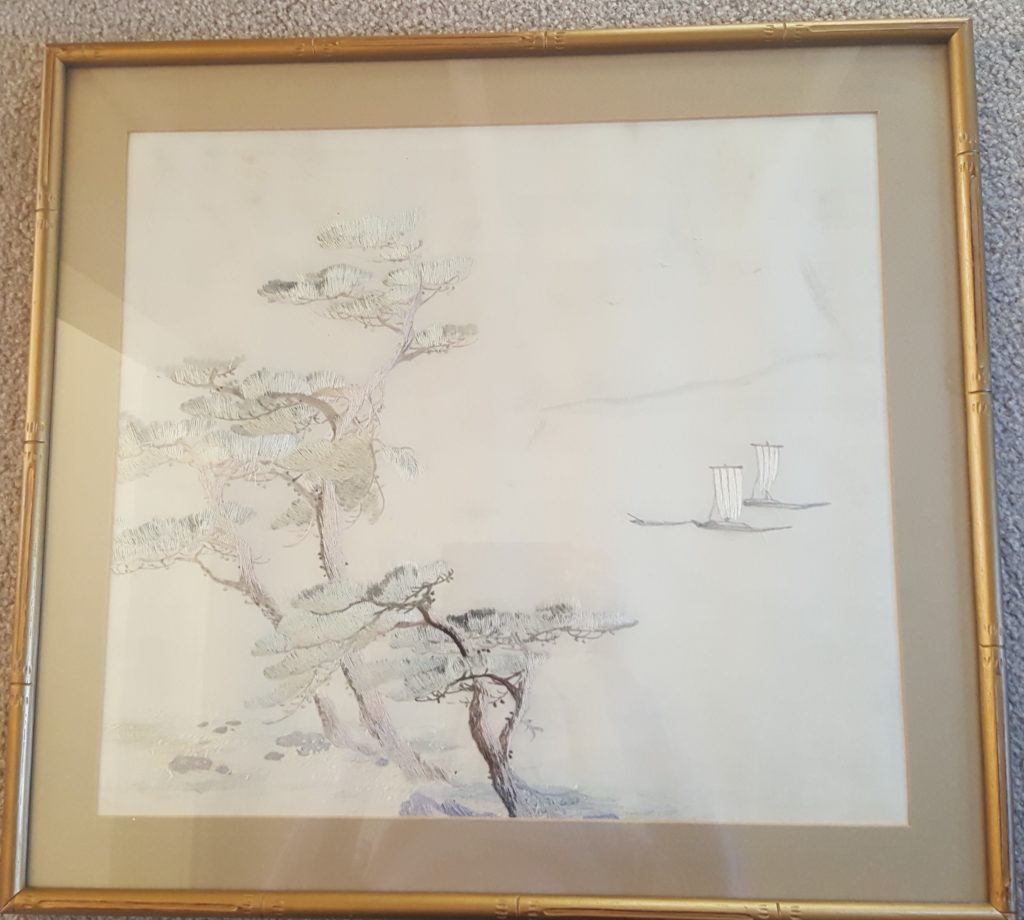
Uncle Pat invested his Trans-Siberian Railroad money in the American stock market at just the right time to become a paper millionaire. And stayed in the market just long enough to be wiped out. Destitute, he moved in with my grandparents at about the same time Grandma Great was widowed and moved in with them. If you ever think you don’t have enough space in your house, consider this: My grandparents owned a 6-room house during the Depression and had 3 children at the time, as well as a mother and uncle in residence, and – during one unbelievable summer – also Grandma’s sister and her husband and 2 children. 11 people in a 6-room house with one bathroom. My grandmother used to eat her meals sitting on the cellar steps because there was no room around the table – and no other way to get a quiet moment.
Uncle Pat took what work he could find: tending bar at Corny Mann’s Hotel, a dilapidated place that slumped on a hill above the Windgap Bridge until about 10 years ago. The building dated to the late 18th century, and unproven stories claim that George Washington once stopped there. Uncle Pat took a break from bartending during WW2, to build LSTs at Neville Island, but after the war it was back to Corny Mann’s until he died in the 1950s.
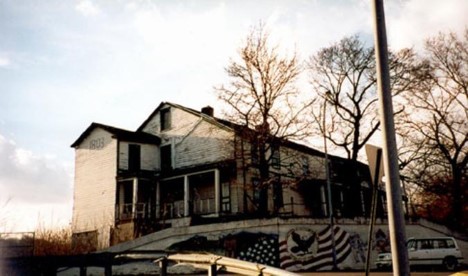
My family in America
There are gaps in what I know about my ancestors and, like so many recently-retired people in their 60s, I am hoping to find time to fill some of those gaps with research. So, there may be a follow-up blog post on this topic in a year or two. But, before I close, I want to preview a tribute to my grandmother, Mary Angela Grant Yaggi, that erstwhile flapper. I adored Grandma, and she deserves a blog entry all her own. Watch for that in a couple of weeks.
The story of my ancestors is the story of America, and the story of every industrial town like McKees Rocks. They failed and tried again and failed again until they succeeded. And they did that in an era when failure meant not unemployment compensation and COBRA, but destitution and eviction. They sweated over lumber or molten steel, or squinted at ledger books, and built a world where their descendants could be accountants, project managers, auditors, analysts, software developers (LOTS and LOTS of software developers; it is the most common profession among living generations of my family). The little town where they lived and worked and loved and died to make our lives possible has seen better days. But I’ll always have a deep fondness for the Rocks. It’s like a grandparent to me: wrinkled and age-spotted and unlovely, but loved nevertheless for its history and for what it gave.

This is wonderful to have history of the Krieger s. I take care of there grave sites but never knew who they were. Thank you Kathy For giving time to do this. Very much appreciated.
Loved reading about your family..keep them coming lol
Great read! Keep those blogs coming